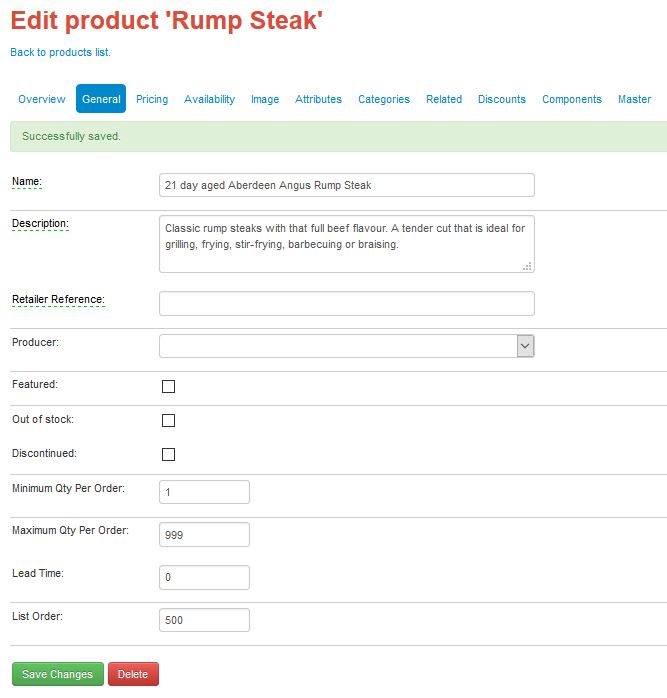SEO – what it is and why it is important
15 February 2017
Intended audience: store owner
SEO stands for Search Engine Optimisation. It is the process of improving your website so that it does better in generic searches in Google and Bing. It is important to you because you want people to easily find your website.
With two thirds of all searches, Google is the biggest search engine and therefore where SEO efforts are typically concentrated. To perform SEO you need a good knowledge of your products, your business and to some degree your industry. Google is helpful in publishing guidelines to help us understand how they would like this information presenting, and the things you shouldn’t do. SEO is chiefly about optimising your website content and getting links from other websites. It is something most website owners are very capable of doing.
Technical topics around SEO are mainly to do with website structure and the passing of instructions to Googlebot, their robot for crawling websites. In the context of a FoodCommerce online shop these things have already been considered and are included in our latest themes, as appropriate.
Read Google’s search engine optimization starter guide
Your domain name
It is not always considered an element of SEO however your domain name really does matter. If people already know who you are they will search for you by your name. If your domain name and trading name are an exact match then there is a very good chance Google will list your website on the first page of their search results, if not at the very top.
Later I will show you where to find out which keyword searches are sending visitors to your website, however you can expect your name to be at the top of the list and by some considerable margin.
Content
In the context of a FoodCommerce online shop selling groceries for delivery to local customers, consider how Google would rank a product page in your website against specific keywords or a phrase, say "buy rump steak online in Peterborough". How will Google know that your webpage is more relevant, more useful and more trustworthy than other webpages and be confident to suggest it to the searcher?
One answer is the webpage content. What Google is looking for is the most unique, the most interesting, the most valuable, the most useful content for their customers. In these regards your content needs to be better than other similar webpages if it is to appear higher in Google’s search results.
Product name
To continue with our example lets take our rump steak as our FoodCommerce product. The first part to consider is the product name. In FoodCommerce the product name is also used to create the first part of the webpage <title> tag, which is then followed by " - " and then the trading name of the store. The page title is important because it is used by Google as their title and link anchor for your entry in their search results; so in our example it would be like "Rump Steak – Farm Shop & Butchery".
Google guidelines, however, advise you to be descriptive with the title as it is the primary piece of information searchers use to decide whether or not to click and go to your webpage. So consider if renaming your product would give you a better title in Google search results. Would "21 day aged Aberdeen Angus Rump Steak – Farm Shop & Butchery" work better? And as the product name appears in the page content, changing it would improve that at the same time.

Product description
Most family butchers could wax lyrically for hours about their rump steak and this is what you should be doing in the product description. Google likes unique original content so use your own words and don’t copy and paste from elsewhere.
Some bits like the origin or whether the cattle were grass fed are going to repeat across products so consider taking that information out of the description and putting it in an attribute instead. Provided a reasonable amount of the content is unique it shouldn’t be a problem and that unique bit should be in the product description because that makes your pages more readable.
As well as describing the steak and its provenance you might want to say how it could be cooked and what might accompany it. Anything you think would be useful to the reader you should include as it all helps to distinguish your webpage from other similar ones.
In our search example an attribute named "delivery information" with a value like "Available for delivery in Peterborough, Stamford, Market Deeping and Bourne and surrounding areas." as the value would also help.
Similarly, your category pages should also have good quality names and descriptions.
Which keywords do I target?
It is good practice to research the keywords relevant to your business and if appropriate incorporate them into your content. This will help popular searches match with your webpages. Google helps by providing a keyword planning tool as part of AdWords, their pay-per-click advertising tool. It is free to use however you will need an account.
Meta-description and your home page
Metadata is data about data and in webpages it is put it in the <head> section using the <meta> tag. The only one we are interested in is referred to as meta-description. Google says it "will sometimes use the meta description of a page in search results snippets, if we think it gives users a more accurate description than would be possible purely from the on-page content". The snippet they are referring to is the text that appears underneath the title in their search results.
In most cases your webpage content should be suffice however there is one very important page where this is not always the case and that is your home page.
The home page typically has lots of images linking off to different parts of your website, but very little text. This gives Google a bit of a problem so helping out with a meta-description describing your offering is a very good idea. Keep to 160 characters or less as any more will be trimmed off.
A good home page meta-description will concisely say what you do and where you do it. For example: "High class traditional family butcher selling online and from our shop in Werrington. Delivery available in Peterborough, Stamford, Market Deeping and Bourne".
Add or change your home page meta-description in your FoodCommerce online shop in the template part named "Content-HomePageMetaDescription".
Note that Google will not include the meta-description in indexing the content.
Home page title
As previously mentioned the webpage title is a very important part of a search result and your home page title is especially important. "Home" or "welcome" just won’t do as it doesn’t tell the searcher anything about you or your website. So you need to change it to something more descriptive.
To change this in FoodCommerce you want to be on the page named "/" in core pages. Look for the line like
{% Block "Title" %}Welcome{% EndBlock %}
and change the word "welcome", being careful not to delete any part of the opening or closing block tag. Ideally titles should be no longer than 50 characters long, but you could stretch to 60. Remember we add " - " plus your trading name to the end so you need to allow for that. To continue with our example let’s change it to
{% Block "Title" %}Online butcher in Peterborough{% EndBlock %}
which would give a title on the home page like:
<title>Online butcher in Peterborough – Farm Shop & Butchery</title>
Descriptive alt attributes
For your HTML code to be compliant all <img> tags should have an alt attribute. Google’s robot cannot read images so they like these alt attributes to be descriptive so they can understand the subject matter of the image. They also like the image file name to be meaningful and related. The alt attribute is especially important if the image is being used as a link to another page and Google expects it to fairly represent the page it is being linked to. As an example they like to see code similar to:
<a href="/delivery/"><img src="/media/home-delivery.jpg" alt="book a home delivery slot"></a>
Links to your website
To get your webpages to rank highly you need to get other websites to link to you and this should be a major part of your ongoing SEO effort. The quantity and quality of the links will be used to estimate how important your webpage is to others.
Do not get involved with websites engaging in link schemes or other deception as links from them will do you harm.
Here are a few suggestions to get you started:
- Suppliers
- Partners
- Customers (social media)
- Industry bodies that you are members of
- Food bloggers
- Magazine and newspaper articles
- Social media
Measuring your website performance
Using Webmaster Tools will help you understand how well your website is performing in searches. It will also tell you how Googlebot is getting on and of any problems it finds. If you need to tell Googlebot to index your website or an individual webpage you do it here.
Use Google Analytics for a more detailed analysis of the traffic to your website. Find out where your traffic is coming from, visitor behaviour, the technology they are using and more. You can even conduct content experiments to see if your changes improves your traffic.
Should you employ an SEO?
Employing a third party to improve your ranking in search engines can be useful and hopefully the above will help you in knowing what you are asking them to do. Unfortunately SEO is not an exact science and that has attracted a lot of snake oil salesmen who promise the unachievable, use methods that are deceptive and do work that will have no effect just to take your money.
As an example we don’t include an option for meta-keywords, but still get asked how to include them. Back in 2009 Google announced they would no longer look at them. Bing, the other big search engine, does use them, but only as a means for finding spammers and not for improving rank. A true SEO expert would know this.
If you do choose to employ someone to do your SEO please ask lots of questions and always know what they are doing on your behalf.
Read Google’s advice on employing an SEO

Tony Fear